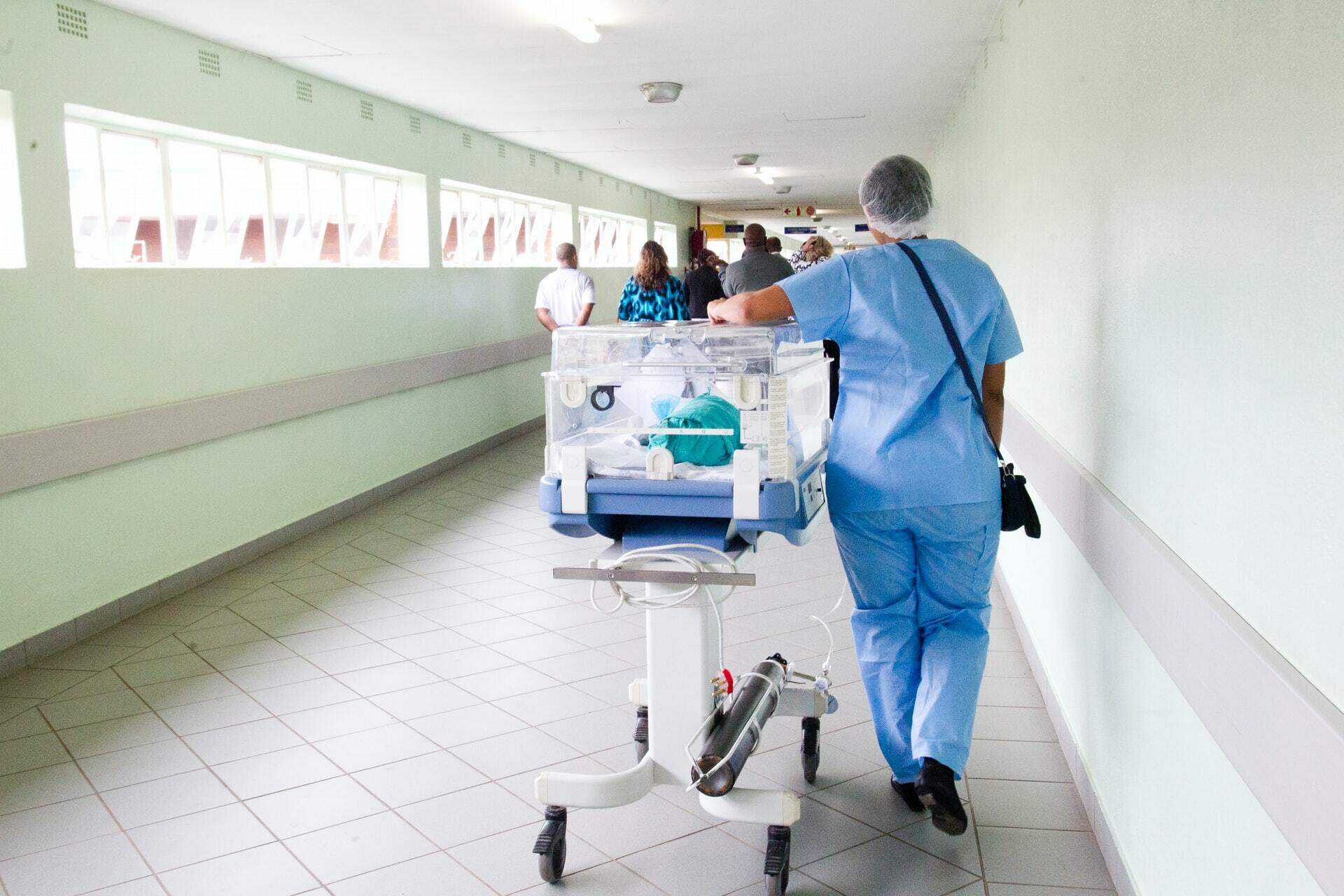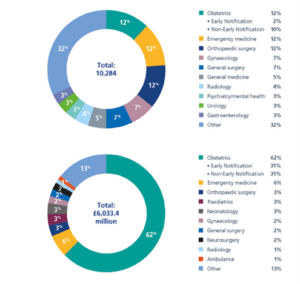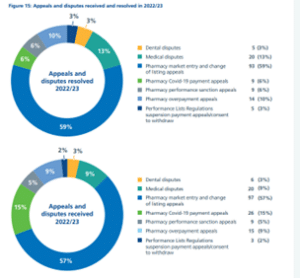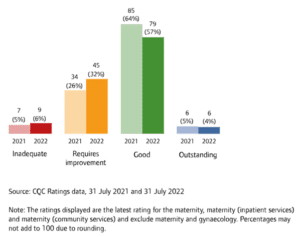In the UK, there are hundreds of thousands of babies born every year and this should be an amazing time for families, however, if the correct care is not given, it can be a traumatising time and can potentially lead on to lifelong health problems for both babies and mothers. Unfortunately, maternity failings account for the majority of billions of pounds spent by the NHS on clinical negligence claims, and the NHS are warning of the “devastating” consequences that poor care can have.
NHS Annual Report Findings 2021-2022
In 2021 – 2022, the NHS spent £13.3 billion on negligence claims, and maternity claims made up 60% of this figure. The NHS stated “A stark reminder that although the NHS remains one of the safest healthcare systems in the world within which to give birth, avoidable errors within maternity can have devastating consequences for the child, mother and wider family, as well as the NHS staff involved.”
The figure below shows the percentage of clinical negligence claims that were reported in 2021/2022 by speciality, with a breakdown of volume and by value:
Source: NHS Annual Report
- In 2021/2022 there were 1,243 obstetrics claims, accounting for 12% of all clinical negligence claims by volume – this places maternity related claims among the top 3 specialties by volume. This was an increase from 1,157 in 2018/2019.
- In 2021/2022, obstetrics claims accounted for 62% of all clinical claims by value received in the year, this highlights the underlying impact of the financial costs of paternity indemnity payments, alongside the impact of harm on the patients, families and healthcare staff.
According to the NHS Annual Report, one of the new strategic aims for 2022-2025 is to collaborate to improve maternity outcomes. The report states “Bringing together key parties to determine what further improvements can be made within our areas of expertise to support the government’s maternity safety ambition.”
NHS Annual Report Findings 2022-2023
- In the period, the NHS found that in this period obstetrics claims accounted for 13% of all claims made, a 1% increase on the previous year.
- There were 13,511 new clinical negligence claims made during this period
- In the period 2022-2023, the NHS spent £7 million on negligence claims, a £6 million decrease from the previous period, however this can be attributed to His Majesty’s Treasury (HMT) discount rates which has had the effect of significantly reducing the value of claims.
The figure below shows the percentage of clinical negligence claims that were reported in 2022/2023 by speciality, with a breakdown of volume and by value:
Care Quality Commission’s Findings
According to the Care Quality Commission (CQC), despite the initiatives to improve the quality and safety of maternity care in England, the pace of progress has been too slow. In fact, the ratings from CQC show that as of July 2022, the quality of maternity services is getting worse:
- 6% of NHS services (9 out of 139) are now rated as inadequate
- 32% (45 services) are rated as requires improvement
- The care in almost 2 out of every 5 maternity units is not good enough
The figure below shows the overall maternity core service ratings in England between July 2021 and July 2022:
Source: Care Quality Commission
The findings of CQC’s recent reviews and reports show that the quality of staff training, poor working relationships between obstetric and midwifery teams, and a lack of robust risk assessment are all continuing to affect the safety of maternity services. All of these factors can have devastating effects for patients when they are giving birth.
The CQC also carried out a survey and the key areas for improvement involved the availability of staff, confidence and trust, and communications and interactions with staff, some of the statistics from this survey showed that:
- The proportion of pregnant people being given the help that they needed when they contacted a midwifery team during antenatal care dropped from 74% in 2017 to 69% in 2022.
- There was a downward trend since 2017 for pregnant people saying that if they raised a concern during labour and birth, they felt like it was taken seriously. This was down 4% from 81% in 2017 to 77% in 2022.
Maternity Negligence Claims
Maternity negligence claims are a type of claim that arise when either a mother or a child have suffered any harm or injury due to the negligent care of healthcare professionals. Maternity negligence can occur during the pregnancy, birth or postpartum care. These types of claims can include:
- Any diseases of infections that have been caused by negligence
- Delivery errors resulting in injury
- Inadequate scans
- Misdiagnosis of pre-existing conditions
- Injuries to the child during birth, for example, Cerebral Palsy or Erb’s Palsy
If you have experienced maternity negligence, it can have a significant impact on both the mother and the child’s physical and emotional wellbeing. Negligence can cause harm and potentially lead on to long-term complications or chronic health conditions. This type of negligence can also cause emotional and financial distress for families.
It is important to note that not all cases of adverse outcomes during pregnancy and childbirth are due to negligence. However, if you believe that you or your child have suffered any harm or injury due to negligent care, you may be entitled to compensation.
At Patient Claim Line, we work on a no win no fee basis, so you can find out for free whether or not you can make a claim relating to your maternity negligence. Our medical negligence experts will be able to guide you through the claims process and help you understand what compensation you may be entitled to. So if you feel as though you or your child have suffered due negligence surrounding pregnancy and birth, please get in touch today.




